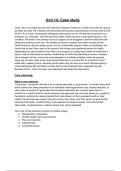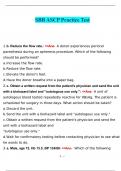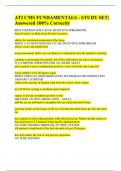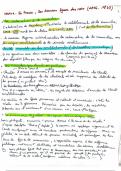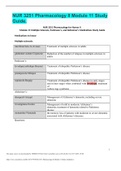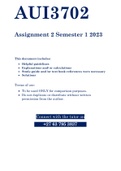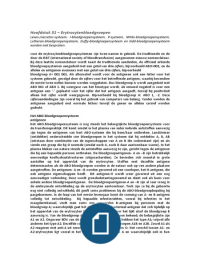Other
Health and social care unit 14 task 2 - care plan
- Institution
- PEARSON (PEARSON)
This assignment achieved a distinction grade. It includes a care plan for individuals with Parkinson's disease and a case study. INCLUDE the following: P5 P6 M4 D3 P7
[Show more]
